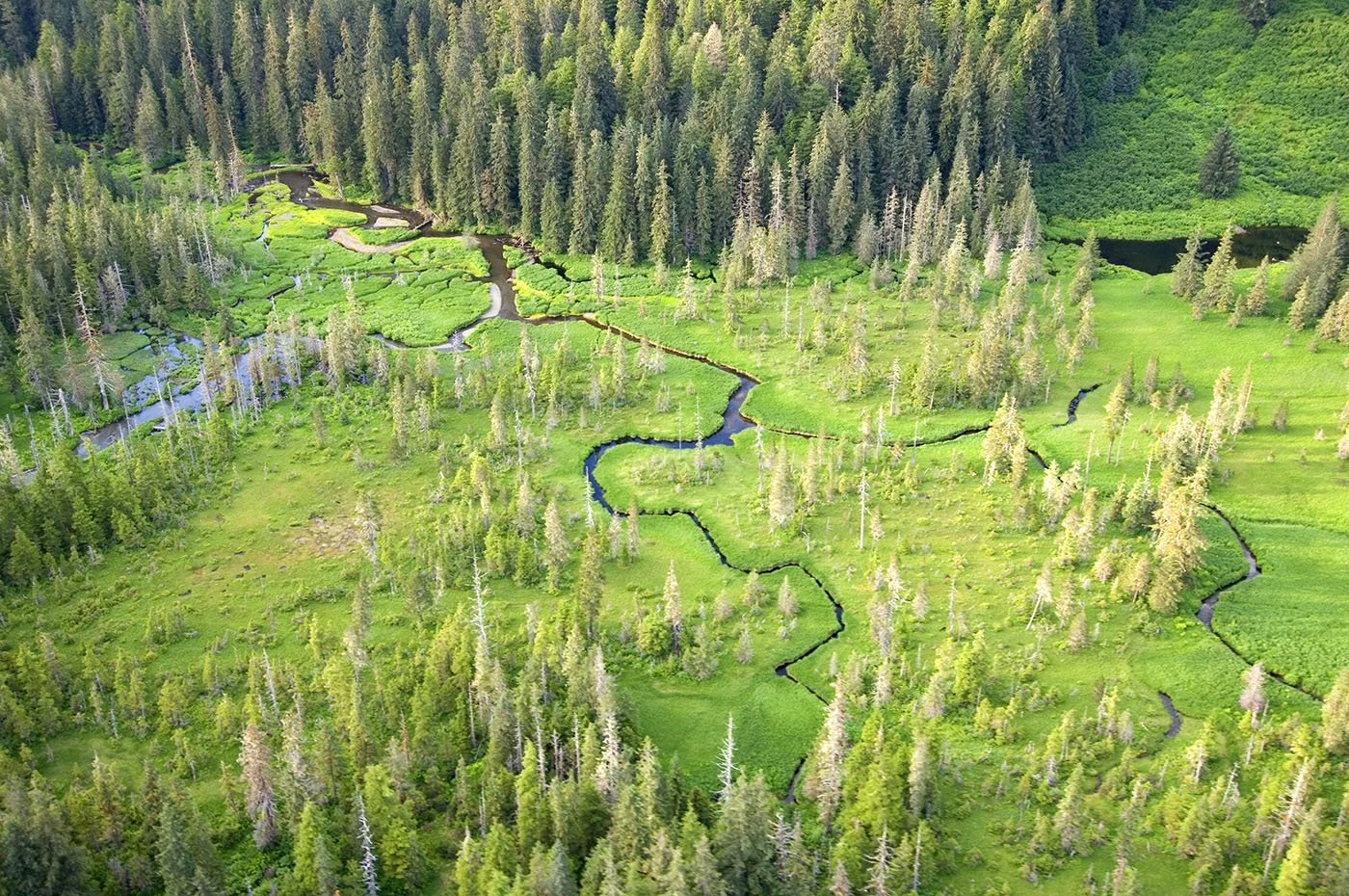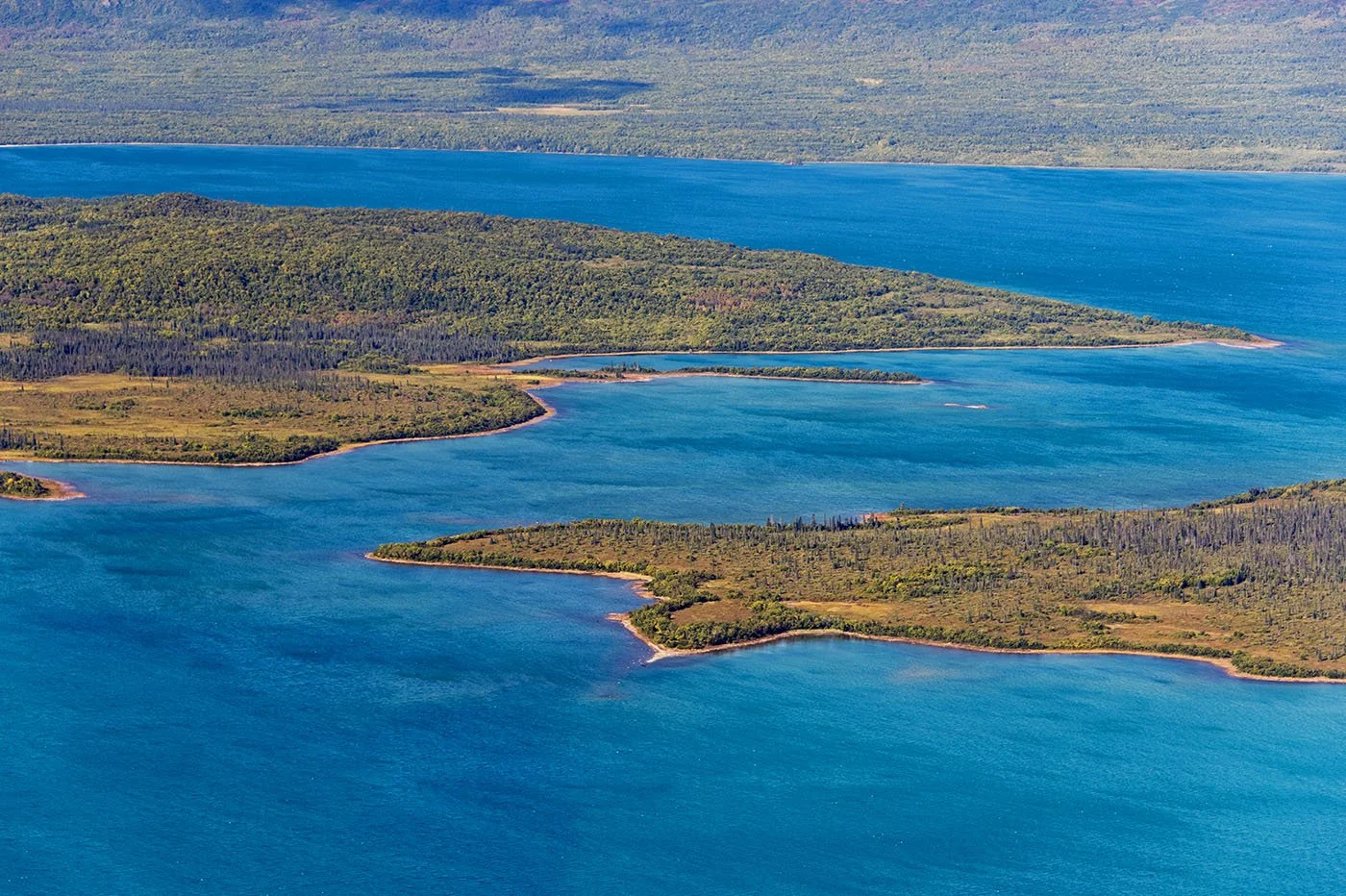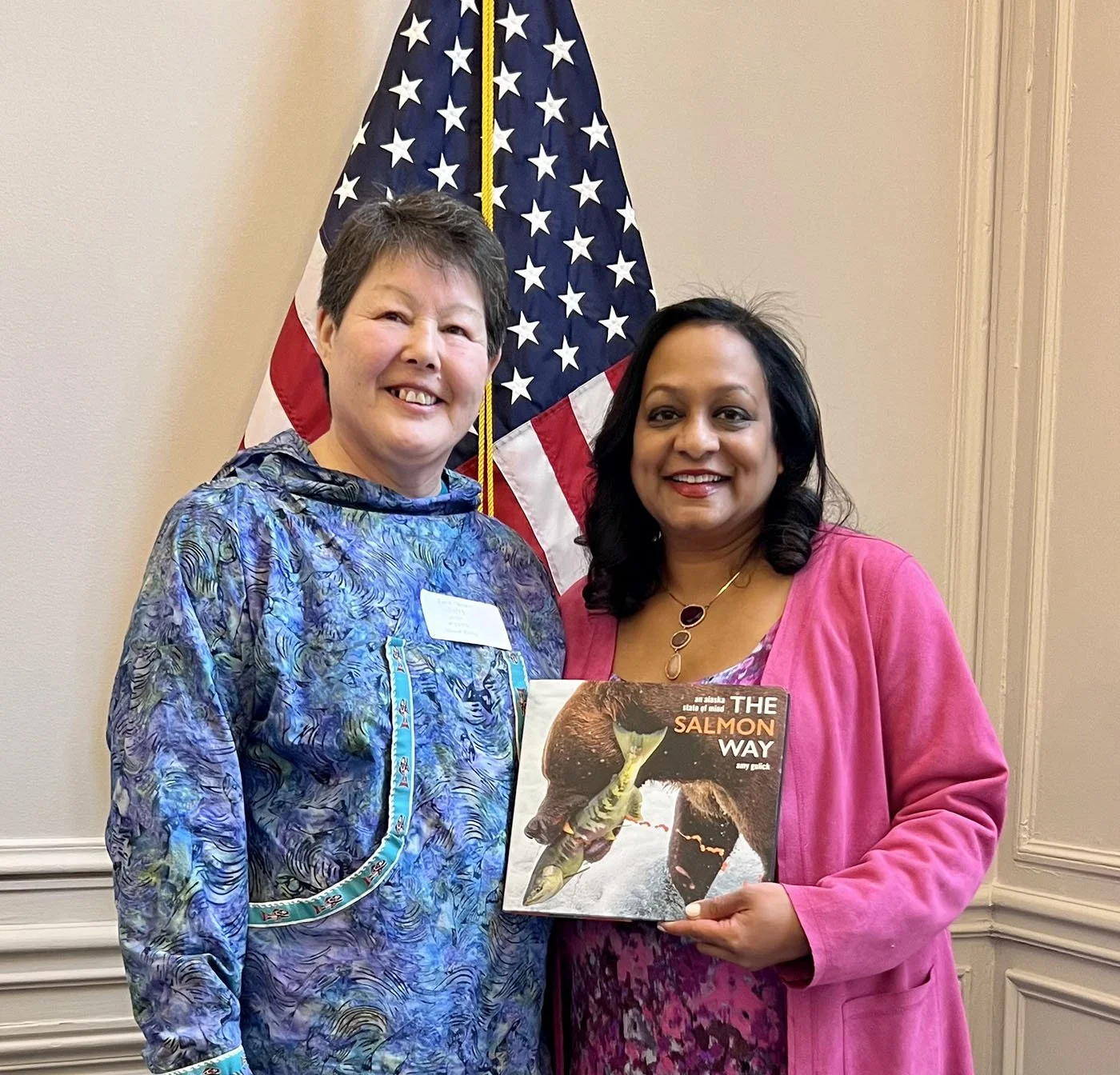Double Victory for Alaska Salmon
By Safina Center Senior Fellow Amy Gulick
If you spend your time making the case for all life on Earth and you live long enough, then maybe, just maybe, the stars will shine in your favor and you’ll experience a victory. In January 2023, the stars shone bright for wild Pacific salmon in Alaska, not just once, but twice.
At 17 million acres, the size of the state of West Virginia, the Tongass National Forest in Alaska is home to the world’s largest remaining old-growth coastal temperate rain forest. ©Amy Gulick
Victory #1: Salmon in the Trees in the Tongass
On January 25, the U.S. Department of Agriculture reinstated Roadless Rule protections for 9 million roadless acres in the Tongass National Forest in Alaska, the largest national forest in the United States. The Tongass is home to 5,000 salmon spawning streams that flow throughout the world’s largest intact coastal temperate rain forest. At 17 million acres, the size of the state of West Virginia, the Tongass is a place where bears, bald eagles, salmon, orcas, humpback whales, and people live in a circle of life that is remarkably still intact. In 2000, I testified at a packed public hearing in favor of passing the Roadless Rule, which proposed to protect some 60 million roadless acres throughout the entire U.S. National Forest System. In 2001, the Roadless Rule passed with a last-minute inclusion of the Tongass. Before the ink was dry, lawsuits were filed and the Tongass has been in a legal ping-pong tournament ever since with Roadless Rule protections restored and removed over the years depending on which way the political winds blew. In 2007, I began a journey to document life in the Tongass, resulting in my book, Salmon in the Trees: Life in Alaska’s Tongass Rain Forest. To this day, I continue to speak, write, photograph, and act on behalf of the Tongass, a place where there are salmon in the trees.
The Tongass National Forest supports 5,000 salmon spawning streams, which support millions of fish and some of the world’s highest densities of brown bears, black bears, and bald eagle. ©Amy Gulick
Victory #2: The Salmon Way in Bristol Bay
Victory #2: On January 31, the U.S. Environmental Protection Agency issued a Final Determination under the Clean Water Act to help protect Bristol Bay, Alaska, home to the world’s most productive wild sockeye salmon ecosystem. For the past 20 years or so, Bristol Bay has been threatened by the proposed Pebble Mine, slated to be the world’s largest open pit gold mine at the headwaters of two of the most important salmon rivers in the Bristol Bay watershed. There is no better place in the world for wild sockeye salmon to thrive than Bristol Bay, and there’s no worse place in the world to dump toxic mine waste than into the streams, lakes, ponds, rivers, and spongy tundra of this fecund watershed. In 2014, I began a journey to explore the relationships between people and salmon throughout Alaska, including Bristol Bay, which resulted in my book, The Salmon Way: An Alaska State of Mind. To this day, I continue to speak, write, photograph, and act on behalf of wild salmon and the ways of life they allow wild and human communities to live.
At 40,000 square miles, the size of the state of Kentucky, the Bristol Bay watershed in Alaska is fed by nine major rivers and countless tributaries. ©Amy Gulick
Constant Vigilance
If you spend your time making the case for all life on Earth and you live long enough, then yes, you just might experience a victory. You also learn that our victories are often temporary while our losses are permanent. But our victories, when they do happen, are hard won, long fought, and deserve a celebration. A BIG celebration. So let’s give thanks to all who came before us, all who have left, and all who continue to carry the torch for wild Pacific salmon. And for those yet to come, may your home streams and dreams be filled with the fish that pulse through the land and our lives.
Bristol Bay is home to the world’s largest runs of wild sockeye salmon. ©Amy Gulick
Karla Jensen (left) of the United Tribes of Bristol Bay presents The Salmon Way by Safina Center fellow Amy Gulick to Radhika Fox, Assistant Administrator of Water for the U.S. Environmental Protection Agency. Ms. Fox made the final determination under the Clean Water Act that will prevent the proposed Pebble Mine from destroying Bristol Bay, Alaska. Photo Courtesy of Karla Jensen.
Amy Gulick, Safina Center Fellow, is the author/photographer of The Salmon Way: An Alaska State of Mind and Salmon in the Trees: Life in Alaska’s Tongass Rain Forest.





